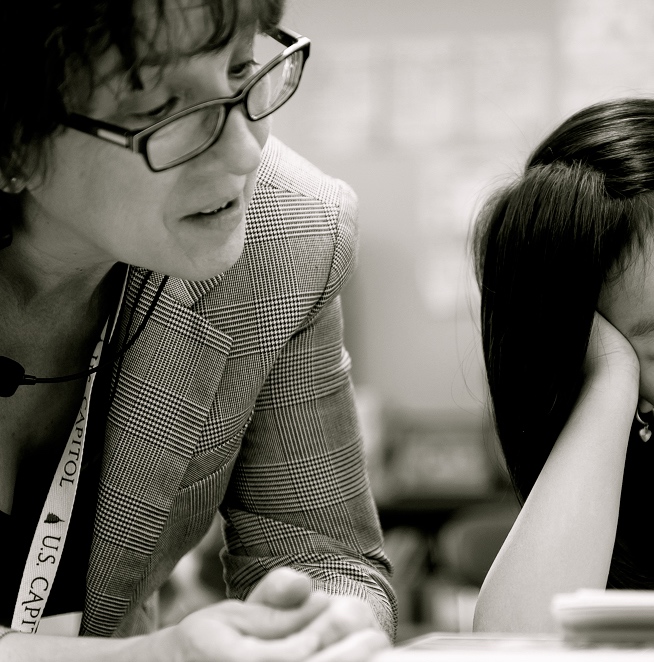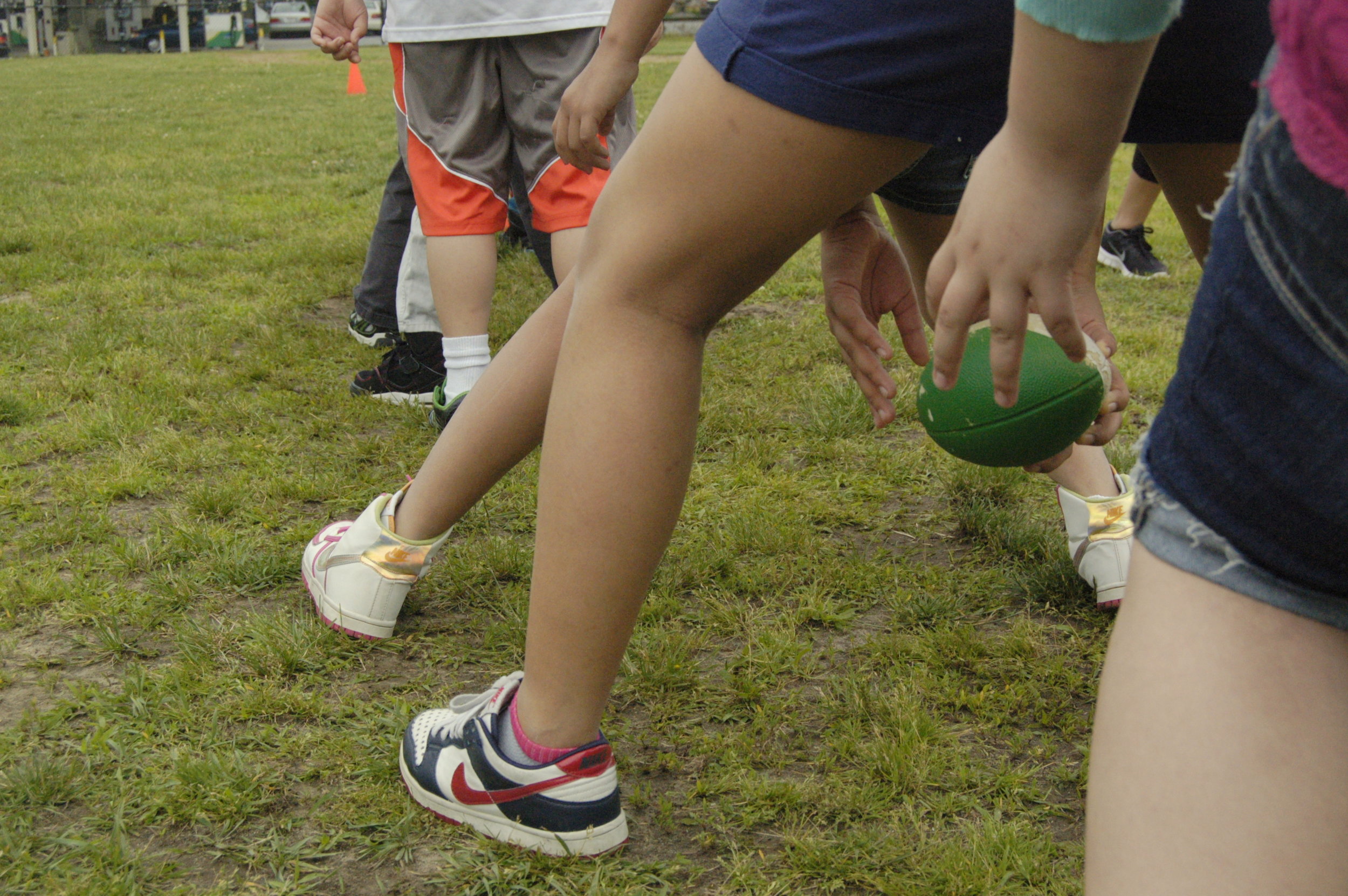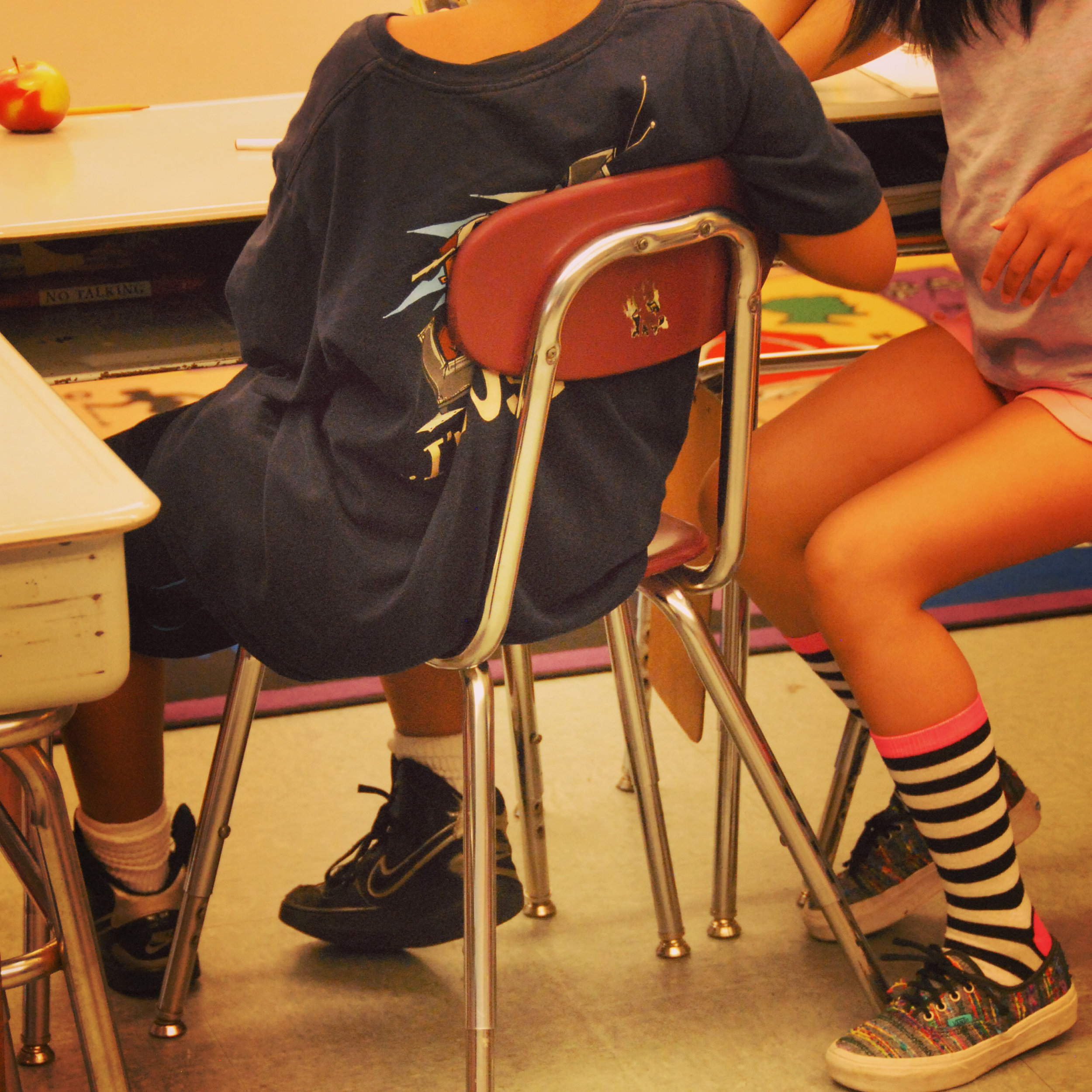An Old Educator's Thoughts on Reading Instruction
After teaching nearly 30 years, I must admit I am totally confused by the debate over reading instruction. Maybe I am missing something? Balanced Literacy vs. Scientific Methods?
Over the last 10 years of my long career, I observed that whenever the a specific reading program was dictated, success, often defined by scores on standardized tests, was fleeting. When I worked in a school where the school leaders had worked in classrooms, and as admins continued to spend extended times actually doing the work of teaching, I thought I had achieved nirvana. The training and discussions were rich and deep. I felt supported to try new approaches when they made sense for my students.
We taught reading under the umbrella of using a balanced literacy approach.
BALANCED literacy includes effective instruction in five essential components: phonemic awareness, phonics, fluency, vocabulary, and comprehension. If reading instruction is effective, an essential descriptor for successful reading instruction, all of these five elements must be included in instruction. Those same elements are part of a scientifically based reading program, but the difference, I believe is that the scientifically based programs include ongoing research and are spelled out more sequentially. An example would be Orton Gillingham.
For those outside of education, to insinuate that phonics is not a part of a balanced reading program is a misconception. And the implication that schools should offer explicit phonics instruction as the only decoding strategy is likewise unrealistically narrow.
I’ve recently read disparaging comments that students are taught “decoding strategies” in place of phonics - which is in my experience, untrue - and uninformed. As an elementary teacher I found explicitly teaching students to use decoding strategies, including, but not limited to phonics, was a pedagogical decision that I continue to feel made sense. Teaching a variety of strategies to decode texts is essential to becoming a fluent reader with good comprehension skills. When I reflect on my own practice as an adult reader, considering what my brain does when I encounter an “unknown”, I use one or more of these skills regularly. For example, when reading a text and encountering a word or term from another language, I often skip and return or use context clues.
Why wouldn’t I teach students that these strategies are what accomplished readers use, too?
When a program is determined to be Scientifically based, there is on-going research that provides an analysis of effective pedagogy. The same five components of reading are included with the emphasis on continued research and evaluation how effective these strategies are. Scientifically based reading is NOT a specific program, although I’m sure there are textbook publishers that would like one to believe otherwise. As educators and educational researchers learn more about how to effectively teach reading, it will continue to change. Educators adapt reading instruction to reflect new understandings, and most importantly to address the needs of the students they work with.
And this is why, for me, teaching reading has always been somewhat of an art as well as a science. No matter what it is called, reading instruction needs to be effective and to include the essential aspects of learning to be literate


 I started reading
I started reading  Two stories from the education world caught my attention this week, and I feel that both are worth the time to read. The first story, Why Teachers Quit by Liz Riggs, is a cautionary tale from 2013 about teachers and burn-out. The second, Silicon Valley Courts Brand-Name Teachers, Raising Ethics Issues is by Natasha Singer of the New York Times. It is a warning for anyone who worries about the possible effects of corporate America's influence in schools and school materials.The Atlantic recently reposted Liz Riggs' 2013 article
Two stories from the education world caught my attention this week, and I feel that both are worth the time to read. The first story, Why Teachers Quit by Liz Riggs, is a cautionary tale from 2013 about teachers and burn-out. The second, Silicon Valley Courts Brand-Name Teachers, Raising Ethics Issues is by Natasha Singer of the New York Times. It is a warning for anyone who worries about the possible effects of corporate America's influence in schools and school materials.The Atlantic recently reposted Liz Riggs' 2013 article  It is back-to-school time here in the City in which I taught for nearly 30 years. You can sense the anticipation in the breezes that flow down the Merrimack. There is an almost unidentifiable change to the air. We are changing seasons; we are changing routines.I loved the first day of school when I was teaching. Make no mistake about it, those first days - and oftentimes weeks - are exhausting as teachers and their new students work to find common ground and to build a community. The first day, the day when everyone wears a little vulnerability in anticipation of new things, the first day is special. And for every teacher who starts rebuilding a new community of learners today, I wish you the best.My mind floods with the memories of some of those wonderfully special students who made the 30 first days that I was privileged to be part of special. So many unique personalities! You kids have enriched my life in ways I could never have imagined.In 1990, I was returning to the classroom after a summer of health crises. I remember the exhaustion that year was not from teaching, but from treatments. Dragging my sorry self into a classroom filled with second graders was not only teacher-exhausting, it was physically and mentally exhausting. Yet every single morning, one of my bubbly, precious second graders, Anita, would throw her arms into the air and tell me "Mrs. Bisson, you look mahvelous today!" Now I know the reality was, I didn't look even close to passable most days. Some mornings, Anita's greeting was the one thing that kept me moving forward. A few years later, this special girl lost her own battle with cancer - and took a piece of my heart with her to heaven.All of "my" kids whether you are grown with your own children or still in the middle of schooling, I am grateful to every single one of you. You challenged me to do better, to figure it out, and yet, every day you taught me something about making the most of our time here in our classroom community and on this earth. All those times when you thought I was teaching you, you were really teaching me.Students are meeting their teachers once again today. May you all have a year filled with precious moments and memory-making. Cherish each moment as you build a lifetime of memories.
It is back-to-school time here in the City in which I taught for nearly 30 years. You can sense the anticipation in the breezes that flow down the Merrimack. There is an almost unidentifiable change to the air. We are changing seasons; we are changing routines.I loved the first day of school when I was teaching. Make no mistake about it, those first days - and oftentimes weeks - are exhausting as teachers and their new students work to find common ground and to build a community. The first day, the day when everyone wears a little vulnerability in anticipation of new things, the first day is special. And for every teacher who starts rebuilding a new community of learners today, I wish you the best.My mind floods with the memories of some of those wonderfully special students who made the 30 first days that I was privileged to be part of special. So many unique personalities! You kids have enriched my life in ways I could never have imagined.In 1990, I was returning to the classroom after a summer of health crises. I remember the exhaustion that year was not from teaching, but from treatments. Dragging my sorry self into a classroom filled with second graders was not only teacher-exhausting, it was physically and mentally exhausting. Yet every single morning, one of my bubbly, precious second graders, Anita, would throw her arms into the air and tell me "Mrs. Bisson, you look mahvelous today!" Now I know the reality was, I didn't look even close to passable most days. Some mornings, Anita's greeting was the one thing that kept me moving forward. A few years later, this special girl lost her own battle with cancer - and took a piece of my heart with her to heaven.All of "my" kids whether you are grown with your own children or still in the middle of schooling, I am grateful to every single one of you. You challenged me to do better, to figure it out, and yet, every day you taught me something about making the most of our time here in our classroom community and on this earth. All those times when you thought I was teaching you, you were really teaching me.Students are meeting their teachers once again today. May you all have a year filled with precious moments and memory-making. Cherish each moment as you build a lifetime of memories. Recently, the
Recently, the  About 10 years ago, I was introduced to the Responsive Classroom, a program that was highly supported in the school in which I worked. There are many
About 10 years ago, I was introduced to the Responsive Classroom, a program that was highly supported in the school in which I worked. There are many  Ludlow Superintendent Todd Gazda posed this question in a recent Commonwealth Magazine article: What is equity? Because, as Dr. Gazda points out, current education policy tends toward equalizing education for all students with standardized curriculums proven by standardized assessment and incentivized "business systems" for implementation.
Ludlow Superintendent Todd Gazda posed this question in a recent Commonwealth Magazine article: What is equity? Because, as Dr. Gazda points out, current education policy tends toward equalizing education for all students with standardized curriculums proven by standardized assessment and incentivized "business systems" for implementation.
 The Subcommittee on Policy, chaired by Mr. Hoey, met on January 27th. The report from the meeting suggested a change to the LPSD school purchasing policy so that LPSD purchasing aligns with the City of Lowell purchasing policy. Much discussion about the threshold of a requests (currently $5,000; proposed $35,000) that would trigger a Permission to Enter. While the full committee supports the editorial changes (see meeting packet), there is a larger discussion about retaining the $5,000 threshold for a variety of reasons, number one being to keep a handle on how the school budget is being spent. This discussion will continue at the next school committee meeting.Reports of the SuperintendentThree agenda items (2016/43, 2016/50 and 2016/44) addressed school year and School Committee calendars. The Calendar for the upcoming school year was approved after Ms. Martin received clarification that the Massachusetts State Primary date was indeed a Thursday (9/8) and not a Tuesday (9/6). The reason for the move to a Thursday election day is explained
The Subcommittee on Policy, chaired by Mr. Hoey, met on January 27th. The report from the meeting suggested a change to the LPSD school purchasing policy so that LPSD purchasing aligns with the City of Lowell purchasing policy. Much discussion about the threshold of a requests (currently $5,000; proposed $35,000) that would trigger a Permission to Enter. While the full committee supports the editorial changes (see meeting packet), there is a larger discussion about retaining the $5,000 threshold for a variety of reasons, number one being to keep a handle on how the school budget is being spent. This discussion will continue at the next school committee meeting.Reports of the SuperintendentThree agenda items (2016/43, 2016/50 and 2016/44) addressed school year and School Committee calendars. The Calendar for the upcoming school year was approved after Ms. Martin received clarification that the Massachusetts State Primary date was indeed a Thursday (9/8) and not a Tuesday (9/6). The reason for the move to a Thursday election day is explained 

